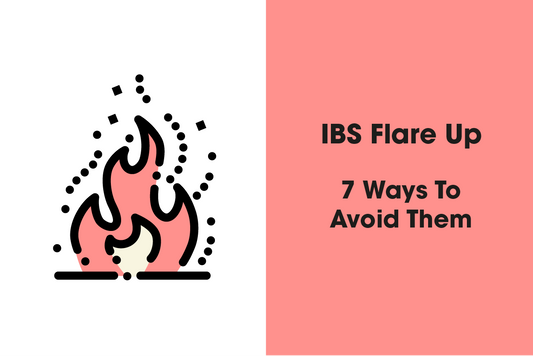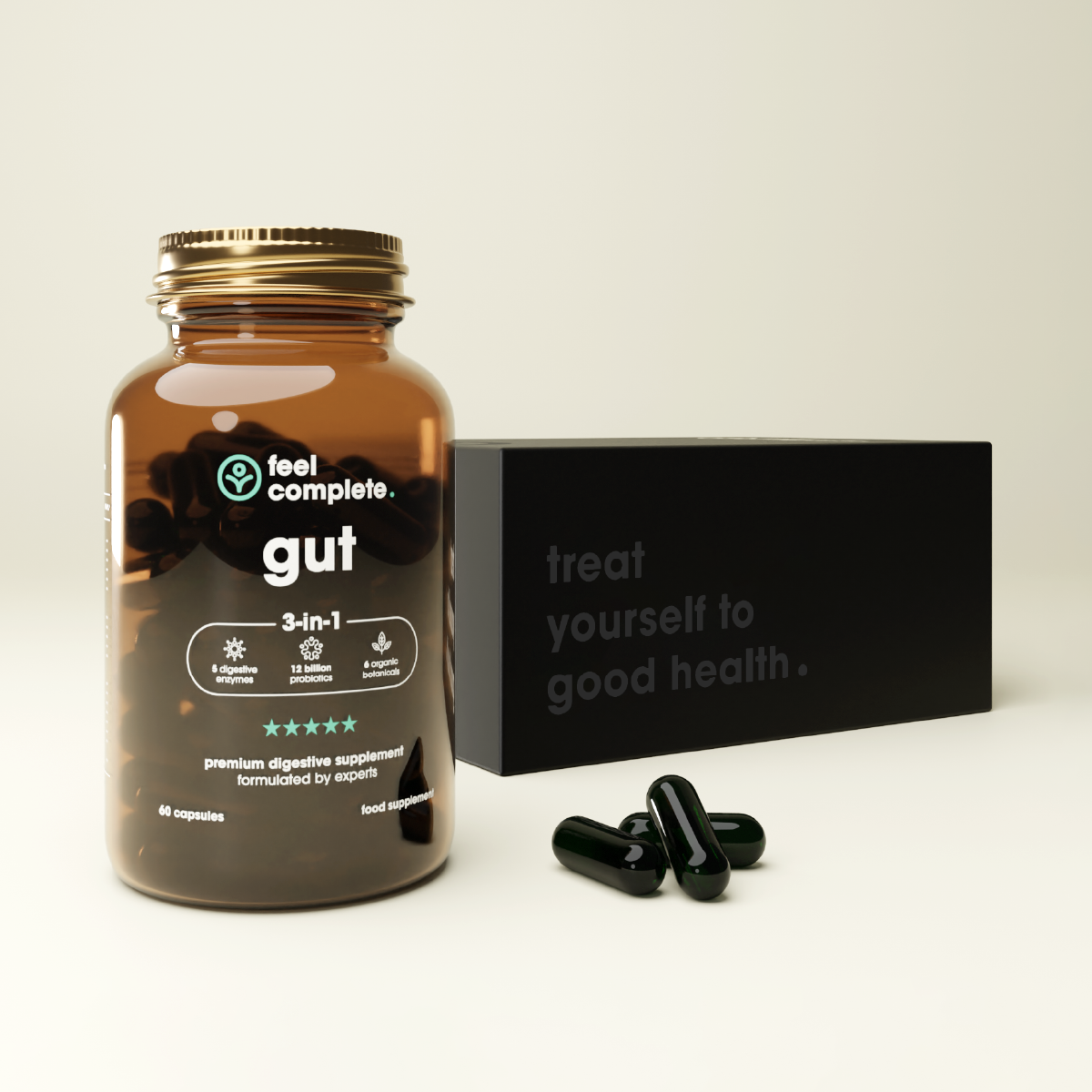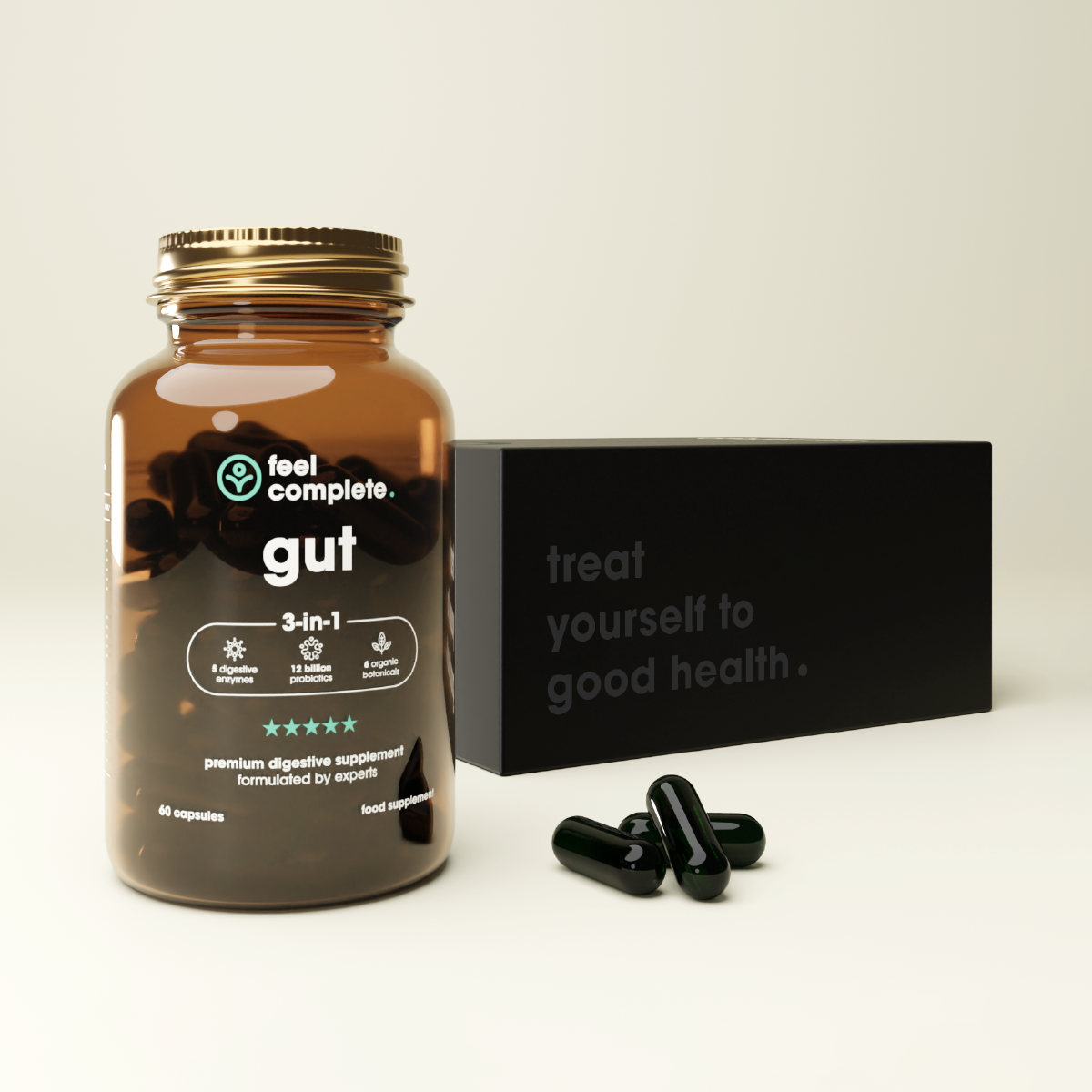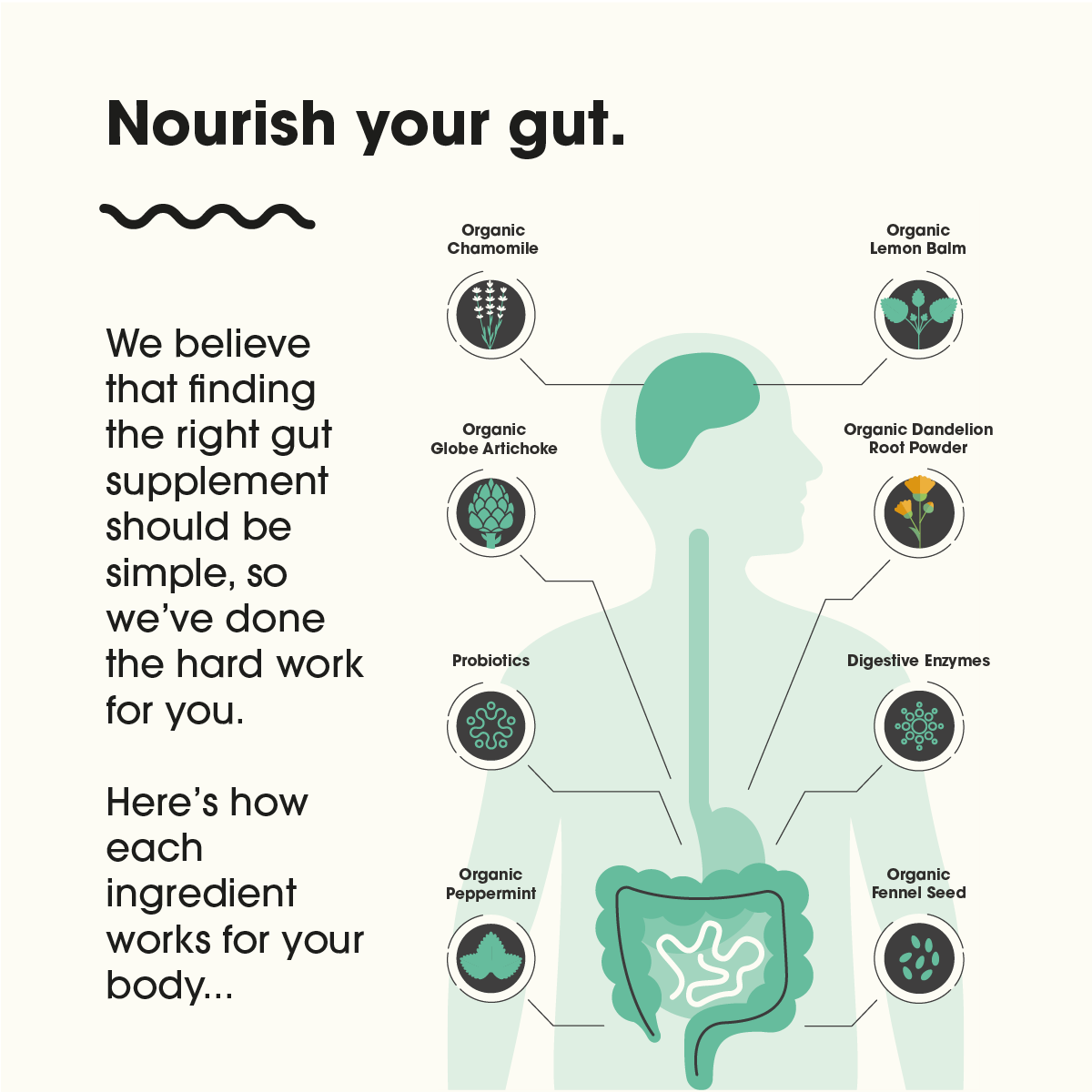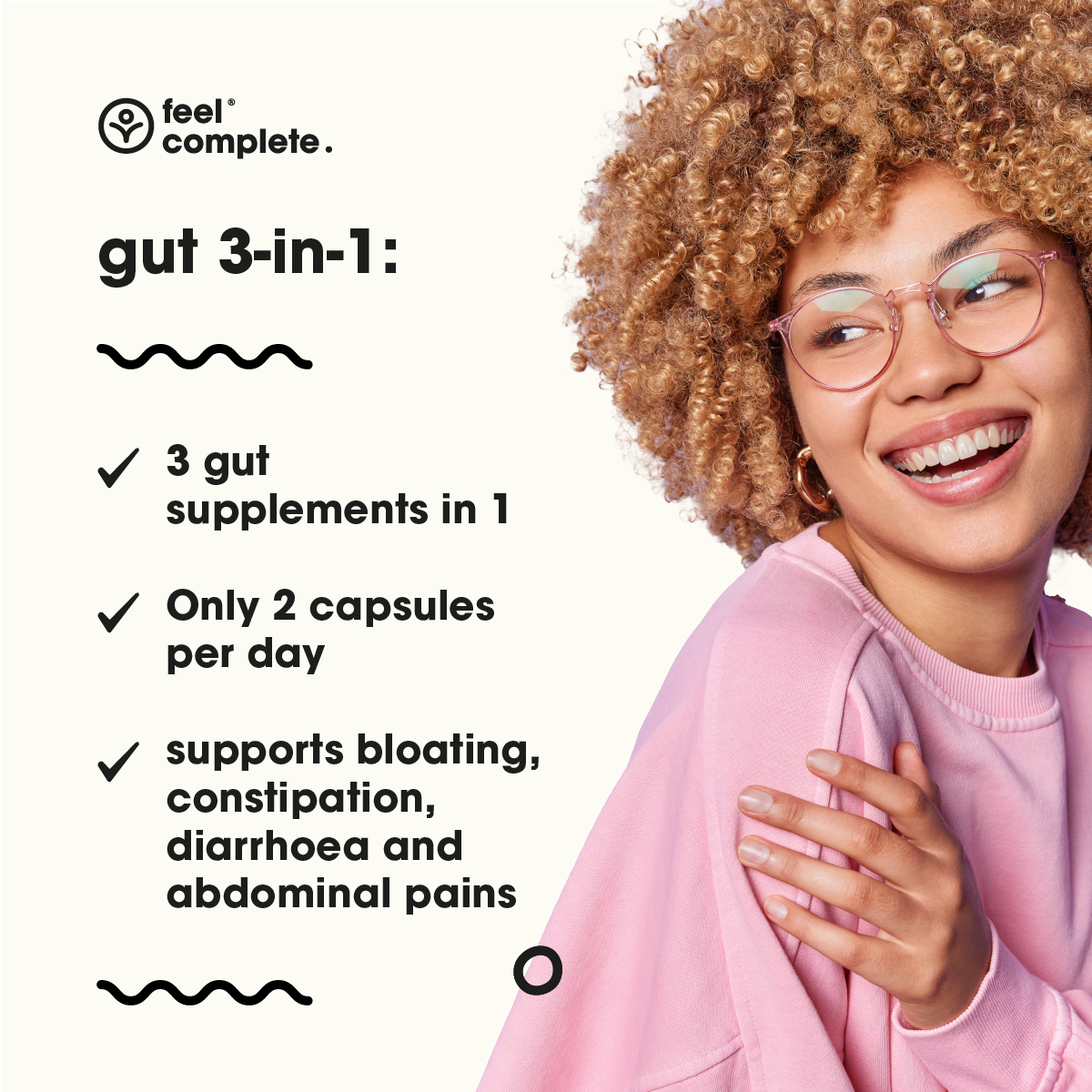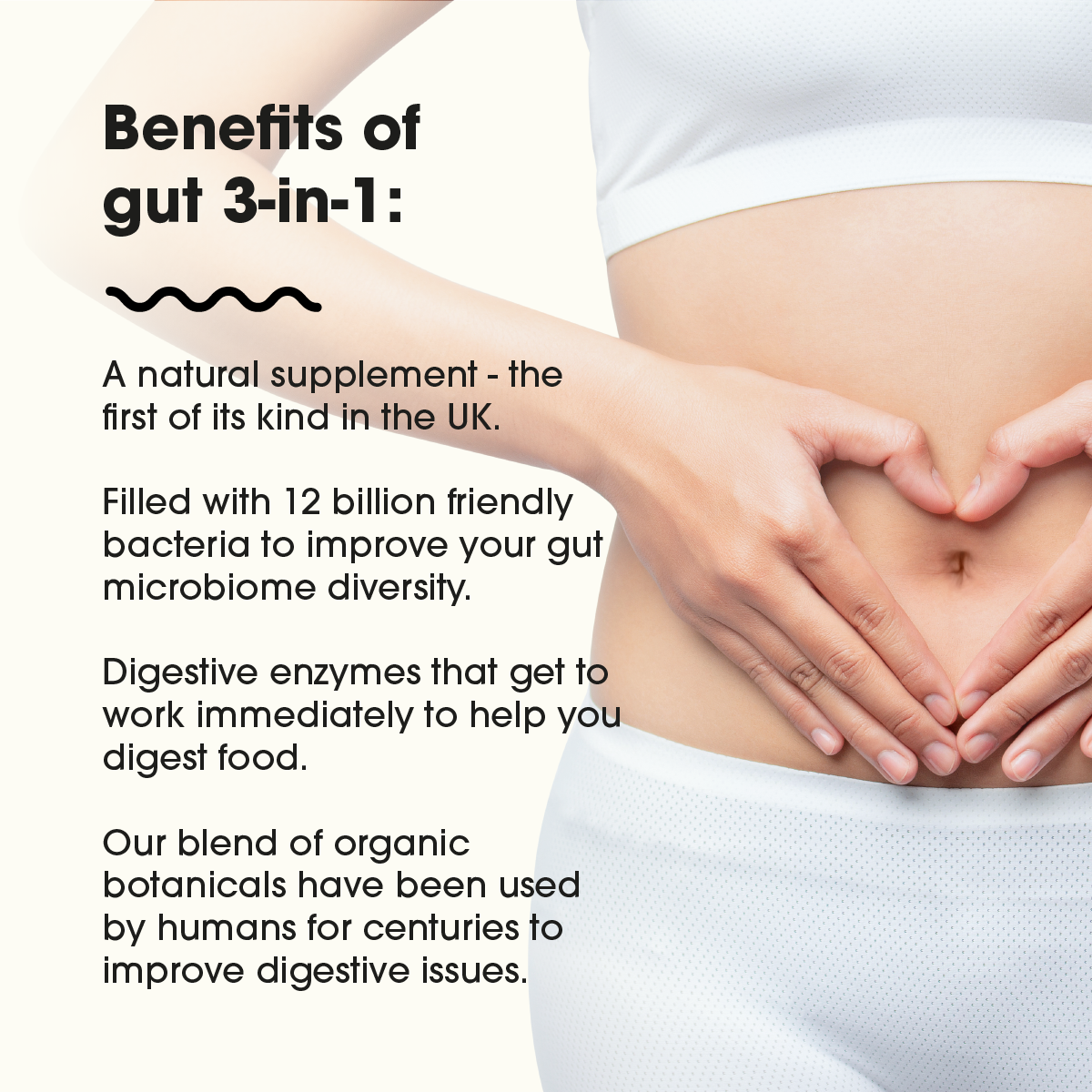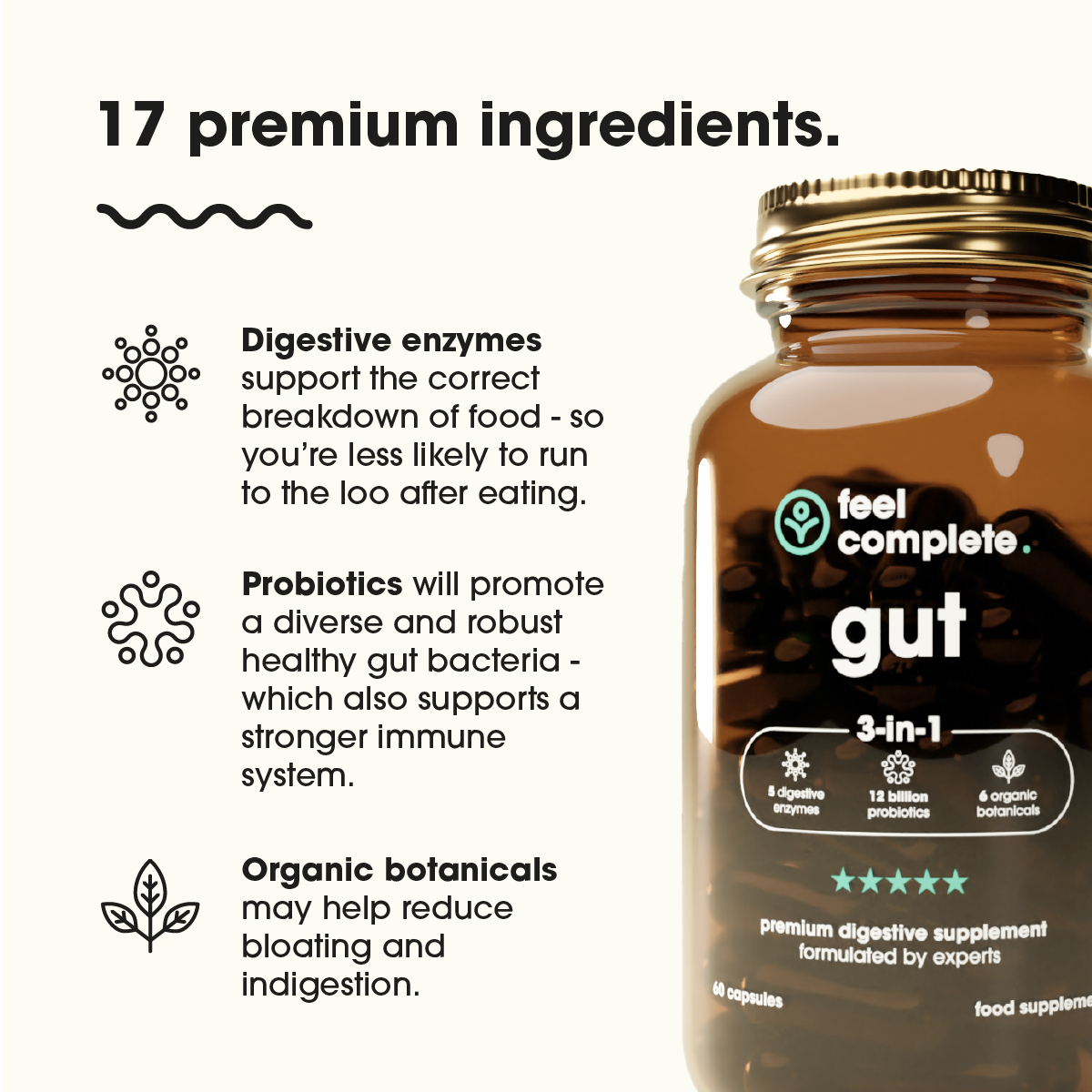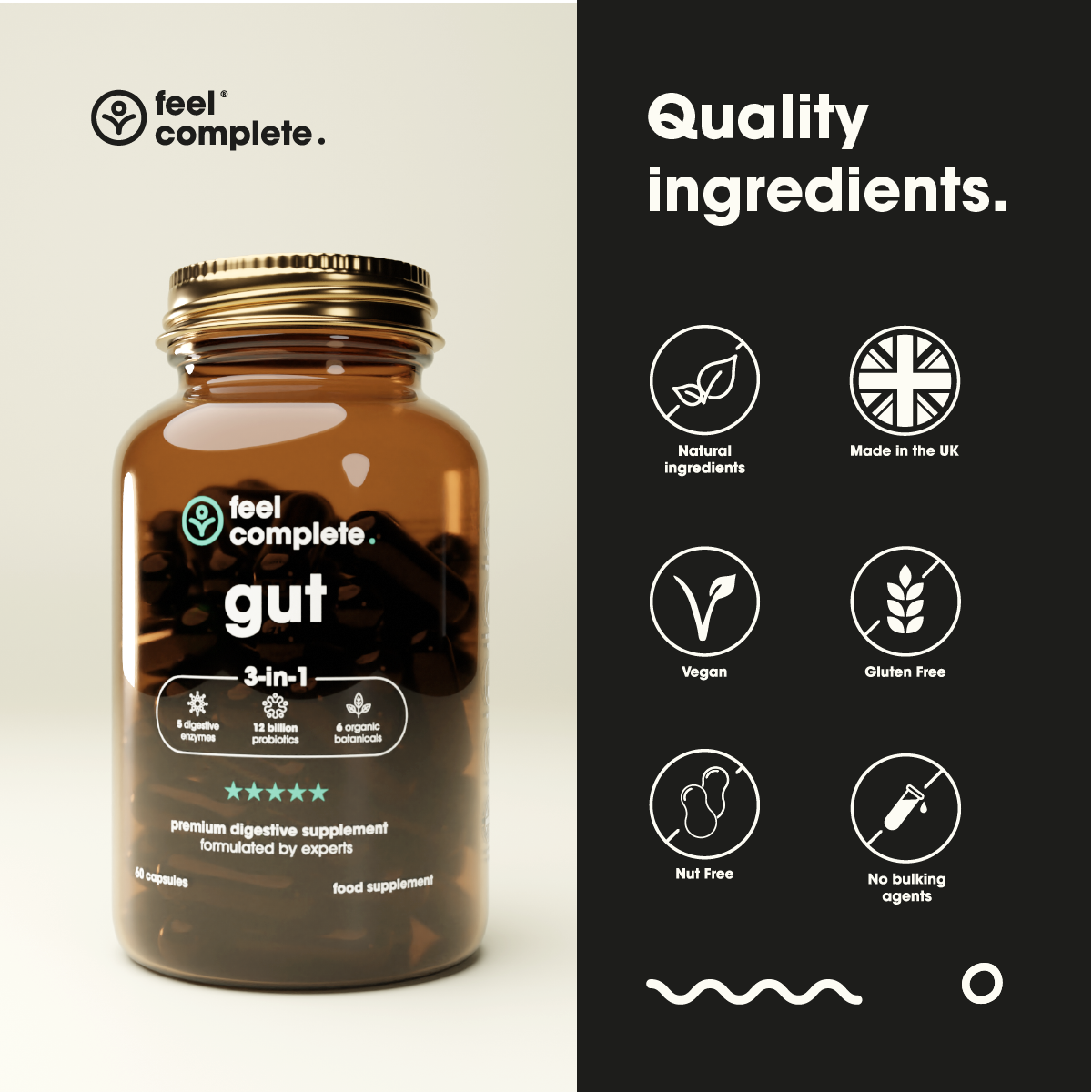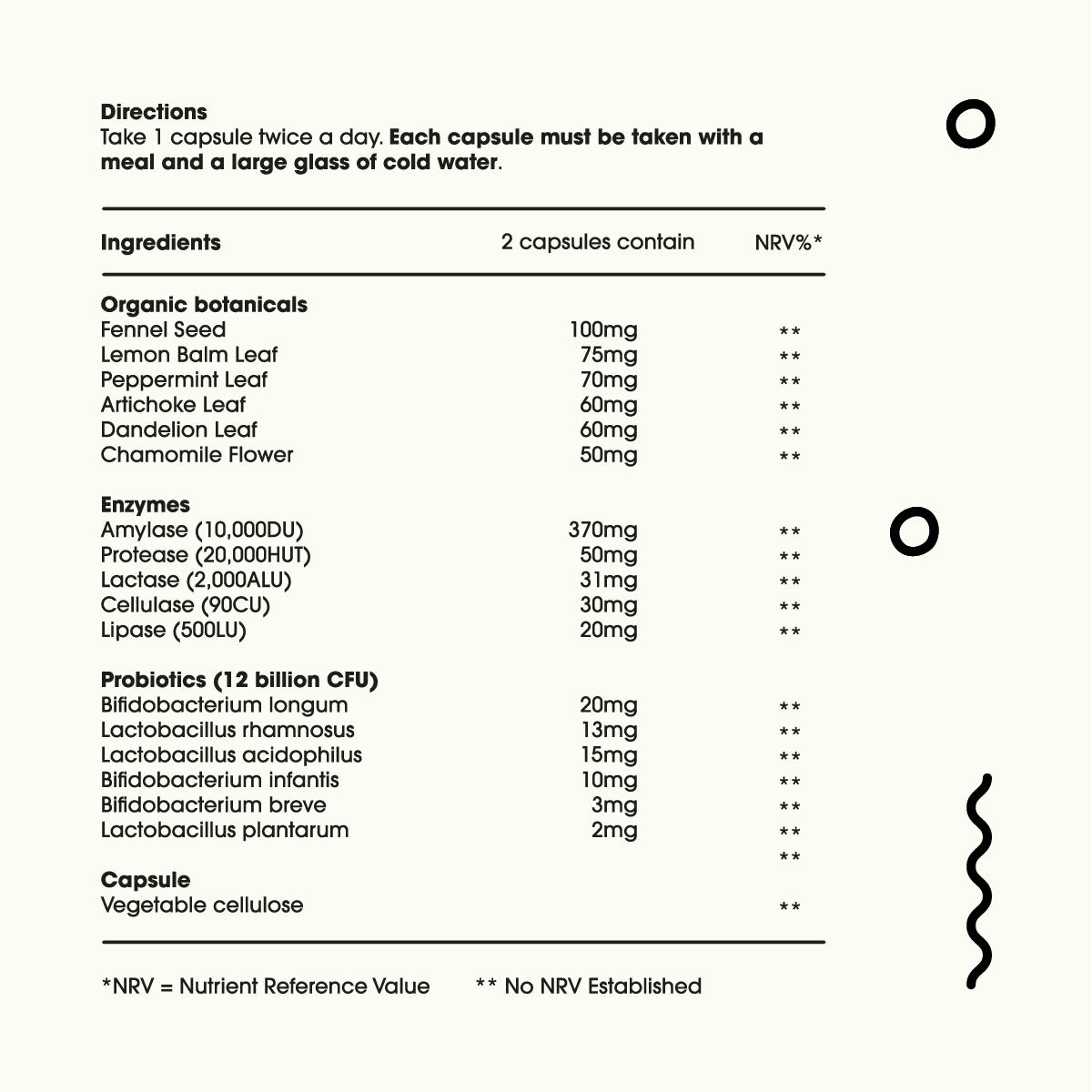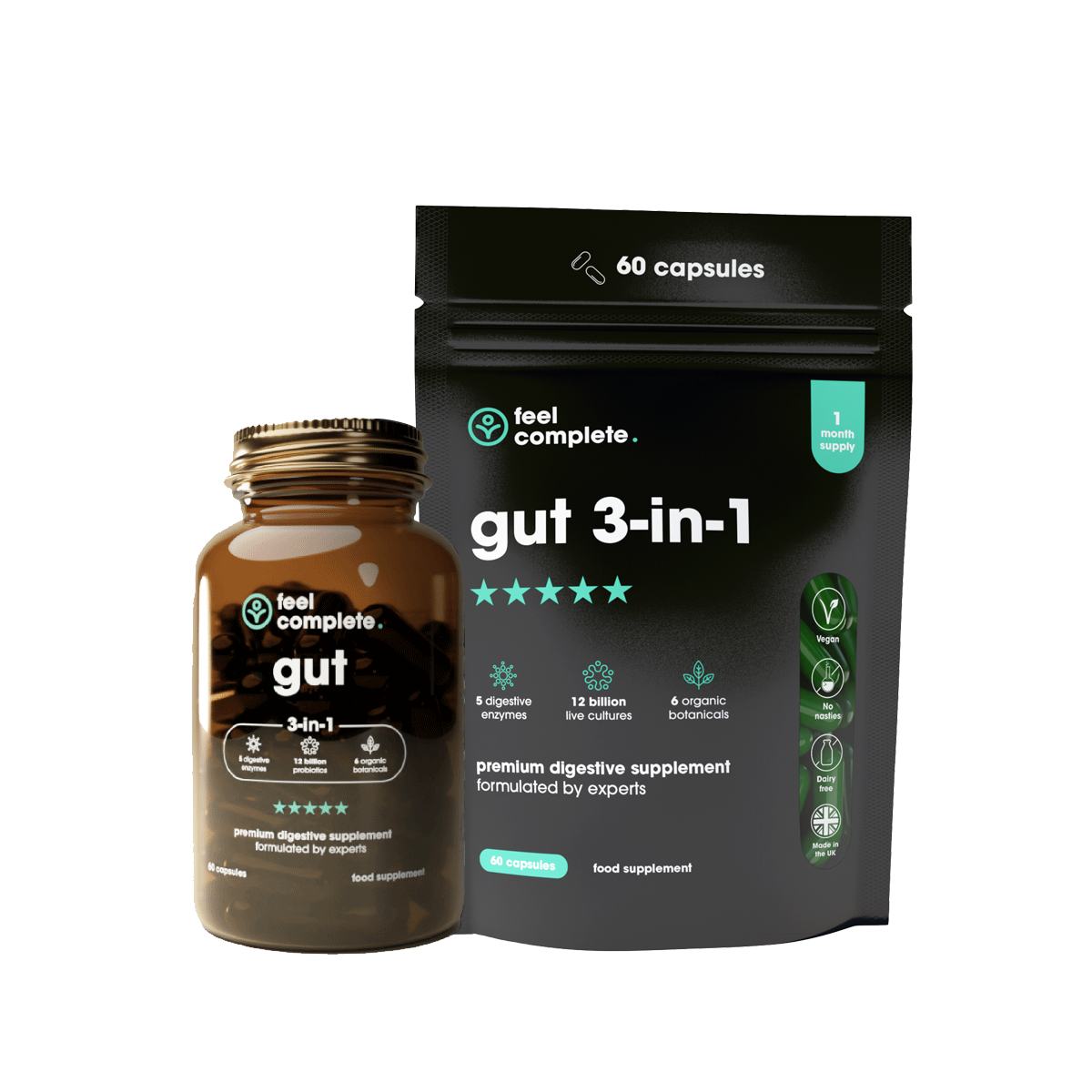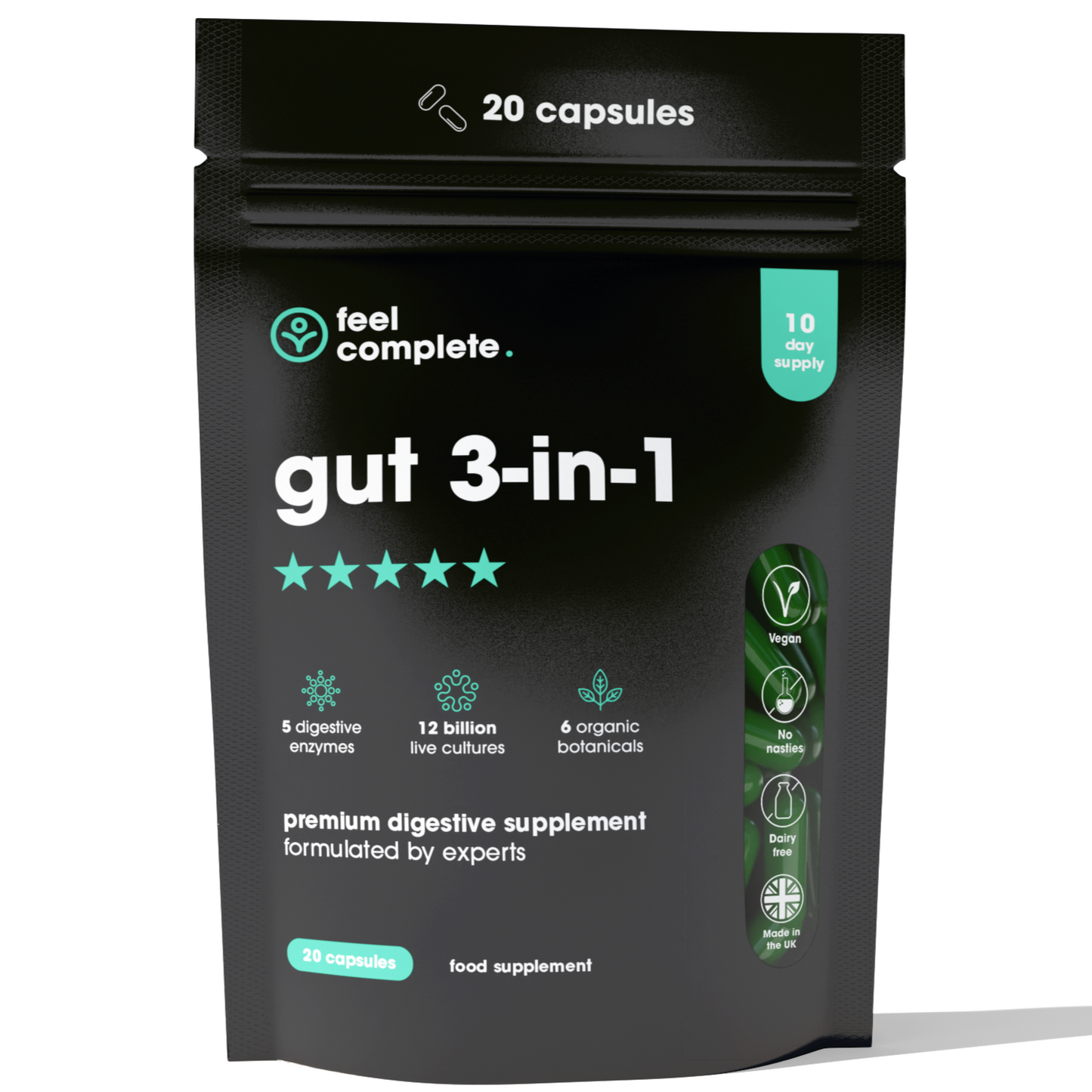What is Constipation?
Constipation is a condition that affects bowel movements. While there is no universally accepted definition, it is generally considered to be having fewer than three bowel movements a week or having hard, pebble-like stools that are difficult to pass. Additionally, you may experience straining or incomplete evacuation during 25% of your bowel movements. According to the Bristol Stool Chart, type 1 and 2 stools are common signs of constipation.

What Causes Constipation?
There are many factors that can contribute to constipation, including medication, thyroid problems, bowel diseases, overuse of laxatives, a low-fibre diet, low fruit intake, high stress, and a lack of exercise. When you have a slower intestinal transition time, your stool may sit in your colon for too long, causing it to reabsorb water and becoming dry, making elimination difficult.
Ways to reduce constipation.
Ginger: A Prokinetic Herb Ginger is a prokinetic, which means it supports the transit time of food through the intestines. Try drinking ginger tea, adding fresh ginger to your meals, or supplementing with ginger supplements.
Bathroom Habits: The way you sit on the toilet and position yourself can have a big impact on bowel movements. By propping your feet up to mimic a squatting position, you can strain less and improve elimination.
Supplements: Supporting Gut Health Digestive enzyme supplements taken with food can support food breakdown, and probiotics can support short-chain fatty acid production, which enhances colonic motility. Our 3-in-1 gut supplement contains digestive enzymes, probiotics and prebiotics - studies show these ingredients can help those suffering with constipation.
Water: The Key to a Flowing Gut One of the most important things you can do for your gut is to drink plenty of water. Aim to drink at least 8 glasses of water per day, which will help support the movement of your bowels. You can also try buying good quality mineral water that is rich in magnesium, which can be beneficial for digestive health.
Fibre: Slow and Steady Wins the Race Another important aspect of gut health is fibre intake. A slow increase in both soluble and insoluble fibre can help support better-formed and softer stools. Some of the best fibre-rich foods include kiwis, apples, pears, and prunes. Just be sure to drink plenty of water when increasing your fibre intake, as fibre needs water to work effectively.
Fresh Coffee: A Quick Gut Stimulant Fresh coffee can be a quick way to stimulate gut movements, making it a great option for people who are looking for a simple solution.
Prunes: Powerhouse Fruits for Better Bowels Prunes contain both soluble and insoluble fibre, which helps to bulk up stools with water and improve gut motility. Try adding 100g of prunes to your diet each day, either as whole fruits or in the form of juice or a smoothie.
Check for Parasites It's always a good idea to get tested for parasites, as they can cause many gut issues, including constipation. A common parasite is H. pylori, and it can be tested by your doctor.
Psyllium Husk and Soaked Linseeds Psyllium husk and soaked linseeds can support gut movement, but be sure to drink at least 2-3 glasses of water with them to maximize their benefits.
Ginger: A Prokinetic Herb Ginger is a prokinetic, which means it supports the transit time of food through the intestines. Try drinking ginger tea, adding fresh ginger to your meals, or supplementing with ginger supplements.
Magnesium Citrate: Softening Stools for Improved Bowel Movements Magnesium citrate is a gentle and effective way to soften stools and improve bowel movements. Take one 150mg tablet before bed, and increase by one tablet (up to a maximum of four) every evening until you see benefits.
Digestive Aids: Supporting Food Breakdown We need stomach acid to support the breakdown of food, and digestive aids can help support this process. Some great options include bitter salad leaves (like rocket and chicory), citrus fruits, apple cider vinegar, and tropical fruits like pineapple.
Prebiotics: Supporting Probiotic Strains Prebiotics, like oligosaccharides, can support certain strains of probiotics and improve gut health for people with IBS-C.
Food Sensitivities: Food sensitivities are a common cause of constipation and digestive distress. By identifying and avoiding problematic foods, you can improve bowel movements and gut health.
Bathroom Habits: The way you sit on the toilet and position yourself can have a big impact on bowel movements. By propping your feet up to mimic a squatting position, you can strain less and improve elimination.
Movement: Gut motility can be improved by moving regularly, especially after meals. A gentle walk or yoga poses specifically for digestion can help stimulate the colon and train the bowels.
Thyroid Function: Constipation can be a symptom of thyroid issues. Consider getting your thyroid checked by a GP or privately to rule out any underlying health problems.
Abdominal Massage: Abdominal massages can help stimulate the colon and support better bowel movements. Try massaging after meals to get your gut moving.
Stress Management: Stress, anxiety, and depression are risk factors for constipation. Consider adapting to adaptogenic herbs, talking therapy, or meditating to support your nervous system and manage stress.
Fibre: More or Less? Fibre can be a confusing topic for people with IBS/constipation. While some are advised to reduce their fibre intake, a lack of fibre in the diet is often the reason for constipation in the first place. To avoid confusion, understand that you can get fibre from a variety of whole foods, such as fruits, vegetables, legumes, nuts and seeds, and whole grains.
For people following a low-FODMAP diet, finding fibre-rich foods can be challenging. In this article, we'll provide a list of low-FODMAP fibre-rich foods to help relieve constipation while still following the FODMAP plan.
Low-FODMAP Fibre-Rich Foods:
- Broccoli (Head Only) up to 1 Cup
- Spinach - 1 Cup
- Blueberries (40-50g/ ¼ Cup)
- Quinoa
- Buckwheat
- Grapes (Handful)
- Bananas
- Oats
- Potatoes
- Almonds (10 Nuts)
Why is Fibre Important for IBS and Gut Health? Fibre plays a crucial role in maintaining gut health. It increases the bulk of the stool, making it softer and easier to pass. The fermentation action of gut microflora and the swelling of insoluble fibre are responsible for this beneficial effect. However, for some people, an increased fibre intake can be too much for their gut, especially if they are not getting the minimum recommended daily fibre intake of 30 grams.
The Benefits of Whole Foods: Eating whole foods like vegetables, whole grains, nuts, and fruit is the best way to consume sufficient amounts of fibre on a daily basis. This not only helps improve gut health but also overall health.
Testing for Better Gut Understanding: If you want to understand what's going on in your gut, there are tests that can provide a closer look at your individual gut issues. If you're interested in learning more, feel free to contact us at hello@feelcomplete.com. We'll provide all the necessary details to support your investigation.






